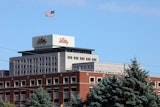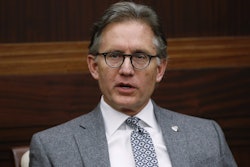Finding skilled labor is the greatest barrier to growth in 2019, according to a recent survey of manufacturers. It’s a candidate’s market; they have negotiating leverage and little tolerance for inferior benefits. Manufacturers are struggling to offer attractive new incentives—stock options, commuter checks, and exercise classes. Nice perks, sure, but employees say they prefer an affordable health plan over perks any day. How does your health plan stack up?
If you offer a high-deductible health plan, studies show you should reconsider. The facts: today’s average deductible is $3,000. Yet, most Americans don’t have $400 in savings to cover medical costs. Deductibles are preventing people from seeking the care they need. Due to cost, 44 percent of Americans say they avoided the doctor last year when they were sick or injured. Care avoidance is costing your business a lot of money. Illness-related productivity losses cost employers $530 billion on top of the $880 billion they spent on health benefits in 2018. General Motors spent more on health benefits last year than steel, according to The Wall Street Journal. Ouch.
J&E Manufacturing Co., a custom metal manufacturing company in the Midwest, knows the struggle. When their existing health insurance provider told the management team premiums were set to balloon over 30 percent in 2019 along with a deductible of $6,500, management took a hard look at alternatives for their 200 employees.
“There was no way we could stand in front of our employees and tell them that,” said Ha Nguyen, corporate human resources manager at J&E. “It would anger most people, and we would risk some of them deciding to explore the marketplace to find a different job. In this talent-scarce economy, retaining our employees is a top priority.”
If you are a manufacturer, like J&E, you should consider whether high-deductible health plans are paying off for you and your employees. Does your plan encourage health, or serve as a barrier to it? Does it help employees navigate the most efficient health care choice, or push them down paths of financial uncertainty or crisis? And how does the plan impact the company’s bottom line?
Employers need solutions that lower health care costs and also give them a competitive edge to attract top talent. What do employees want from their health plan? It boils down to two things: 1.) clarity on what care is covered, and 2.) clarity on the exact cost for that care. They want access to both those things before they obtain care, not weeks after.
J&E found such a solution in a new model of health insurance that puts employees in more control. J&E traded in their deductible for simple copays and coverage verification which people can obtain quickly and easily before they go to the doctor. In 2018, 80 percent of members on the same plan spent less than $500 in total copays—that’s one-sixth the cost of the average deductible. Not only are J&E’s current employees excited, but the company now has a compelling new edge to attract new talent.
“Top tier skilled labor is hard to find. When people look at our benefits package and compare it to others, I can guarantee you they see our plan is superior,” said Nguyen. “In the past, I just glossed over the health insurance plan during interviews. Now, it’s one of the first things I mention about the company. I feel more confident in our health benefit offering – knowing it is competitive and on the cutting edge.”
An insurance plan that allows employees to view treatment costs in advance is a win-win. Employees are able to make better, educated decisions and choose more efficient treatment options, which benefits the bottom line. Other employers offering the same plan saved an average of 10 to 20 percent on health care costs in 2018.
Employers can’t expect their employees to continue to bear the burden of high premiums and deductibles. Candidates are willing to hold out for the best benefits package. A health plan that doesn’t eat away at employee paychecks gives manufacturers a leg up to those offering a high-deductible, high-premium plan. How will you compete?
Tony Miller is the founder and CEO of Bind On-Demand Health Insurance.























